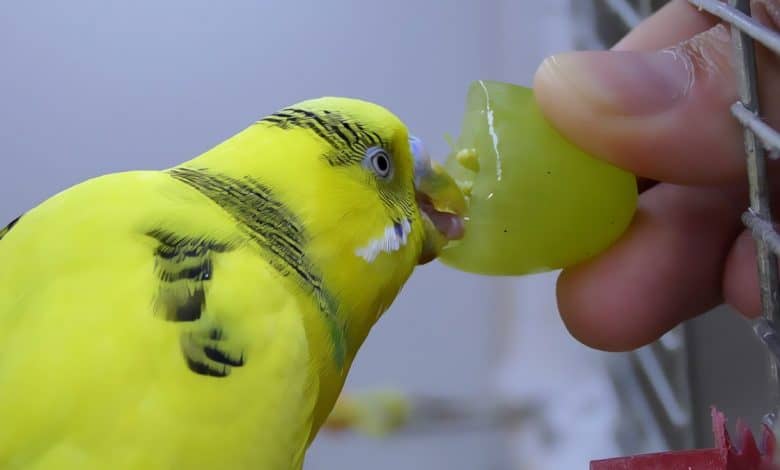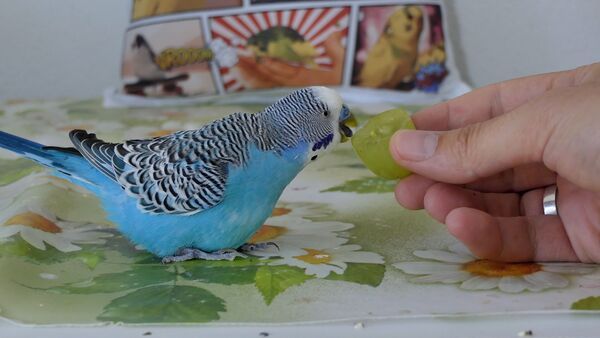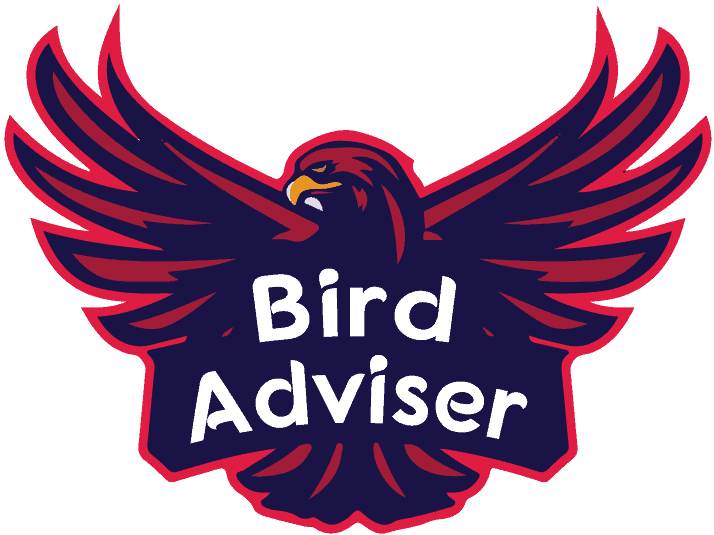Being a proud parakeet owner, I am constantly on the lookout for safe and healthy treats for my feathered friend.
Recently, the question “Can parakeets eat grapes? Is it safe?” caught my attention, and I set out to find the answer.
Grapes are a popular fruit in many households, and the thought of sharing this delicious snack with my colorful companion is quite tempting.
But before I do, I want to make sure it won’t harm my parakeet in any way.
In this article, let’s delve into the topic and explore whether grapes are a suitable and safe addition to a parakeet’s diet.
Join me as we uncover the facts about feeding grapes to our beloved birds.

Can Parakeets Eat Grapes?
Yes, parakeets can eat grapes. Grapes are generally safe for parakeets to consume and can be offered as an occasional treat.
They are a good source of hydration and provide essential vitamins and minerals that can benefit your feathered friend’s health.
However, as with any treat or new food, moderation is key.
Offer grapes in small quantities and infrequently to avoid any potential issues from excessive sugar intake.
Also, remember to wash the grapes thoroughly to remove any pesticides or residues before offering them to your parakeet.
While grapes are a safe treat, they should not replace the main components of a parakeet’s diet.
A balanced diet should consist of high-quality seeds, pellets, fresh vegetables, and leafy greens.
Providing variety and ensuring their nutritional needs are met will contribute to your parakeet’s overall well-being and happiness.
If you have any concerns about introducing grapes or any other food to your parakeet’s diet, consult with an avian veterinarian for personalized advice and recommendations.
Are Grapes Healthy For Parakeets?
Yes, grapes can be healthy for parakeets when offered as an occasional treat and as part of a balanced diet.
Grapes are a good source of hydration due to their high water content, which is essential for maintaining your bird’s overall health.
Additionally, grapes contain various vitamins and minerals that can benefit your parakeet.
These include vitamin C, which supports the immune system, and vitamin K, which is important for blood clotting and bone health.
Grapes also provide small amounts of minerals like potassium and manganese.
Grapes Nutritional Values
| Name | Amount |
| Calories | 104 |
| Protein | 1.1g |
| Carbohydrates | 27.3 g |
| Manganese | 5% of RDI |
| Fiber | 1.4 g |
| Potassium | 8% of RDI |
| Vitamin C | 27% of RDI |
| Vitamin K | 28% of RDI |
| Fat | 0.2 g |
Source: WebMD
Vitamins and Minerals
These Vitamins and Minerals are very essential for a living organism to consume in order to stay healthy and fit.
Each of them present in the grapes give a different advantage to your pet bird.
Potassium
Potassium is highly essential for a parakeet to maintain its blood pressure and improve the health of the parakeet’s heart.
Vitamin C
Vitamin C is important in the growth and redevelopment of the body tissues of your parakeet.
Manganese
Manganese has a role in fat and carbohydrate metabolism.
It plays a vital role in the nerve and brain function of your parakeet.
Fiber
The fiber in grapes helps to control blood sugar levels as well as helps a living organism to live longer.
How Often Can Parakeets Eat Grapes?
Parakeets can enjoy grapes as an occasional treat.
It is recommended to offer grapes to your parakeet once or twice a week at most.
Providing grapes too frequently can lead to an imbalanced diet, as they are relatively high in natural sugars and carbohydrates.
While grapes offer some nutritional benefits, moderation is essential to avoid potential health issues that may arise from excessive sugar intake.
The main components of your parakeet’s diet should consist of high-quality seeds, pellets, fresh vegetables, and leafy greens.
By offering grapes as an occasional treat, you can provide your parakeet with a variety of flavors and textures without compromising their overall health and well-being.
As with any change in diet or treats, it’s always best to observe your parakeet’s response and consult with an avian veterinarian if you have any concerns about their dietary needs or health.
How to Feed Grapes to Parakeets?

You can feed grapes to your parakeet easily, but you need to be careful to wipe clean those grapes first before feeding your parakeet.
You can either give a small grape to your bird so that it can nibble on it slowly by itself, or you can tear the grape in pieces and give it to your bird which will make it easier for the bird to eat.
You just need to take care of the advice to only feed your parakeet with grapes once a week with a minimum quantity to avoid any health issues for your bird.
How Many Grapes Should I Feed My Parakeet?
When it comes to feeding grapes to your parakeet, moderation is key.
Due to their high sugar content, grapes should be given as an occasional treat and not a significant portion of your parakeet’s diet.
For a small-sized parakeet, offering one or two small pieces of grape, about the size of your pinky fingernail, once or twice a week is sufficient.
Remember that grapes should not replace the main components of your parakeet’s diet, which should consist of high-quality seeds, pellets, fresh vegetables, and leafy greens.
Alternative Foods for Parakeets
You can avoid giving a high dose of grapes to your bird, and you can feed it with other fruits as well.
There are other foods that will provide good nutritional benefits to your parakeet.
- Apples
- Berries – Blueberries, Strawberries, Raspberries, and Blackberries
- Melons – Watermelon, Cantaloupe, and Honeydew Melon
- Pears
- Papaya
- Kiwi
- Grapes
- Carrots
- Cucumber
- Broccoli and Cauliflower
- Spinach and Kale
- Cooked Eggs
- Cooked Brown Rice
- Quinoa
Conclusion
In conclusion, we have learned that parakeets can indeed eat grapes, and it is generally safe for them to do so.
Grapes offer hydration and provide essential vitamins and minerals that can be beneficial to their overall health.
However, while grapes can be a delightful treat, it’s crucial to remember that moderation is key.
Due to their high sugar content, grapes should be offered as an occasional treat, not a regular part of their diet.
Providing grapes once or twice a week, in small quantities, ensures that they receive the benefits without the risk of an imbalanced diet.
Moreover, grapes should not replace the main components of a parakeet’s diet.
A well-balanced menu, consisting of high-quality seeds, pellets, fresh vegetables, and leafy greens, remains essential for their nutritional needs.
As responsible parakeet owners, we should always prioritize their well-being by offering a diverse range of safe and nutritious foods.
By doing so, we can contribute to their overall health, happiness, and longevity.
Lastly, if you have any doubts or concerns about introducing grapes or any other food to your parakeet’s diet, consult with an avian veterinarian.
Their expertise can provide valuable insights and ensure that your feathered companion receives the best possible care.
In summary, with proper care and a balanced diet, we can enjoy the company of our colorful and chirpy friends for many years to come.
FAQ
Can I feed grapes to my parakeet?
Yes, you can feed grapes to your parakeet. Grapes are generally safe for parakeets to consume as an occasional treat.
Are grapes healthy for parakeets?
Yes, grapes can be healthy for parakeets when offered in moderation. They provide hydration and essential vitamins and minerals.
How often can I give grapes to my parakeet?
Grapes should be given as an occasional treat, not a regular part of their diet. Offering them once or twice a week, in small quantities, is sufficient.
Should I remove the seeds from the grapes?
Yes, it’s essential to remove any seeds from the grapes before giving them to your parakeet. Seeds can be a choking hazard and are not suitable for consumption.
Can I offer other fruits to my parakeet besides grapes?
Yes, there are several safe and nutritious fruits you can offer to your parakeet as treats. Apples, berries, melons, pears, and kiwi are some excellent alternatives.
Last Updated on August 3, 2023 by Lily Aldrin
